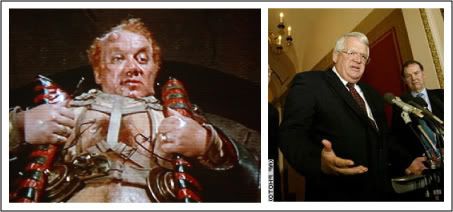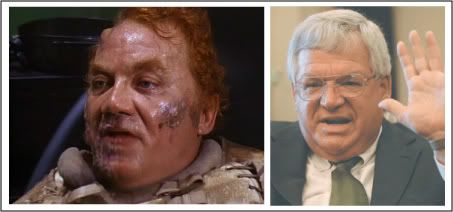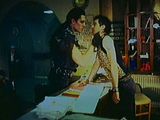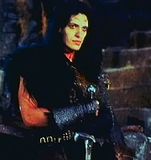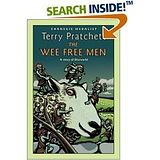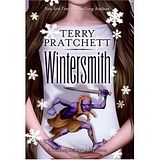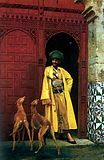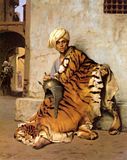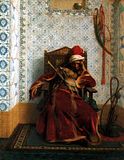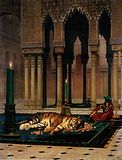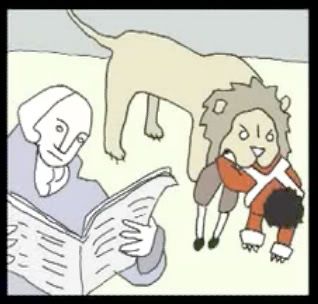For some reason today, I felt like writing a treatise on Teen Wolf and brushing up on my Bluebook skills. La!
Symbolic Characters in Teen Wolf, and in the World: The Hero: Scott, aka Teen Wolf Usually a male, of average intelligence and mediocre athleticism. Sweet, kind, but aching for something more. Surprisingly brave and strong in some situations - a hint to the heroic nature hiding beneath. Is different from others, but only in a vague, promising sort of way.
The Sidekick: Stiles Comfortable in his own skin, “cool”, brave, doesn’t really care what others think of him, apart from the crowd and likes it, which gives The Hero (his best friend) some vicarious cred. The Sidekick represents a mature reality, in a way, but is also an anomaly, in that The Hero can never be like him. It takes a special kind of weird, flouncy person to carry it off.
See Back to the Future (Universal Pictures 1985); Better Off Dead (A&M Films 1985). Is able to wear waffle sunglasses and funky t-shirts without a second thought.
The Hero’s Long-Suffering Soul Mate: Boof The Hero’s best female friend. Always accepting of him, no matter what he does, even if she gets impatient sometimes. The Hero has no idea they are perfect for each other. Usually the Soul Mate has grown up with the Hero, the better for her to know every aspect of him, and love him. Sweet, kind, almost always a brunette.
See One Crazy Summer (A&M Films 1986);
see also Just One of the Guys (Columbia Pictures 1985);
cf. Sky High (Walt Disney Pictures 1985) ("Soul Mate" has red hair).
The Goddess, aka The Prom Queen: Pamela Almost always a blonde. She moves from Alpha male to Alpha male upon evidence of strength and popularity. She is seen as physically perfect, unattainable, responding only to Alpha-esque questions and behaviors. Doesn’t usually understand kindness, or sensitivity; she is merely a beautiful body, a trophy - yet, despite her near-total lack of redeeming qualities, a desperately desired one.
See Better Off Dead; Just One of the Guys; One Crazy Summer;
cf. Sky High ("Goddess" is a brunette);
contra. Can't Buy Me Love (Touchstone Pictures 1987) ("Goddess", blonde, undergoes personality transformation and becomes "Soul Mate").
The Foils: Chubby, et al. The Hero must rise from the depths of
somewhere, and, in 80’s high school movies, it’s usually from the depths of geekdom. The Hero’s Foils consist of his geeky/socially inept/Beta friends, who are alternately accepting and disapproving of the Hero once he begins to ascend. They hope some of the magic will rub off on them, but also scorn the Hero – out of jealousy, and also out of the knowledge that such heights can never be maintained. The Hero is, afterall, a natural geek. Foils take many shapes: overweight kids, skinny kids, kids who wear thick glasses, kids who wear bow-ties, Star Trek fans, math whizzes, etc.
See Better Off Dead; Just One of the Guys; One Crazy Summer; Can’t Buy Me Love;
see also Back to the Future (family - particularly Father - as source of "Foils", rather than actual fellow high school students);
cf. The Karate Kid (only available "Foil" being Daniel Laruso’s mom, who, while enjoyably personifying New Jersey’s assertive voice, brunette hair, and self-confidence, comes across as polarizingly brash and unrefined in rich, blonde California).
The Alpha Male, aka The Prom King: Mick Always mean and undeserving of his popularity, yet able to effortlessly maintain it. Is always sleeping with the Goddess. Very athletic, a strong physical specimen. Intimidates the pack and wins at everything he attempts (if not always by ethical means).
See All 1980's high school movies.
The Law: Vice Principal Thorne A strict authority figure who always assumes – for no discernable reason - that the Hero is up to no good. Pursues the Hero at every chance. Usually turns a blind eye to the Alpha Male, deepening the unfairness of the Hero’s lot. Symbolic of the unfair restrictions placed on Betas. Usually has had some sort of run-in with the Hero’s dad when younger.
See Back to the Future.
Story Synopsis:We first see the Hero in his very unheroic state. He knows, though, that something is wrong. His Best Friend / Soul Mate loves the Hero as he is, but he’s having none of that – certainly there must be something more!! The Hero’s desperation is highlighted by various showings of poor athletic ability, dismissals by the Goddess, commiserations from his geeky Foils – all in opposition to the Alpha Male, the relative popularity/comfort of the Sidekick, and the Law. The Hero, who is as sexually frustrated as any high school geek, sucks so much that when locked in the closet with his Soul Mate, he can’t even kiss her properly because . . .
isn’t there something more?Well, the Hero gets his something more later that night. He undergoes an involuntary physical transformation, becoming who – and what – he really is: a non-moon-abiding werewolf:
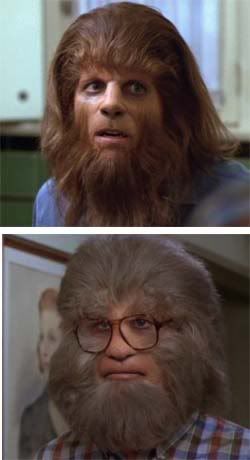
The Hero’s father takes him aside and informs him that, because he is naturally a werewolf, he will soon have great power. This is a common American theme, in the tradition of Manifest Destiny and Spider Man, where the Hero doesn’t actually have to
do anything to be heroic – he just
is heroic - naturally (X-Men), or because of a transfer of power (Spiderman). No need to struggle under a harsh Master in the mountains for this Hero, or paint fences and houses and wax cars, or perfectly scoop up little teacups of water without missing a drop while hanging upside down. No, this Hero doesn’t need to learn any of that – he just needs to blow dry his fur, turn up his collar, and go play some b-ball!!!
But the Hero is initially ashamed of his new (uncontrollable) appearance and identity, because he is afraid he will be ostracized. This causes him great stress and provides ample opportunity for the Hero to get into conflict-ridden, comedic situations with the Law, the Alpha Male, and the Goddess. The Soul Mate tries to get The Hero to open up and tell her what’s going on, but he won’t. The Goddess suddenly notices him and says with a little encouraging smile, “You look different" (right after the Sidekick opens his locker and unceremoniously collapses to the ground as its contents spill out atop him: a paddle, books, paper, a balloon, ribbons, rags, flags, shoes, cards, an umbrella, and googly-eyeball glasses). Speaking of the Sidekick, he, of course, thinks the Hero’s appearance is “beautiful . . . You know, with the right angles, we can turn this into something – haha – monstrous!” and immediately accepts him and gets on with life (especially after Teen Wolf helps him sniff out a bag of marijuana in the garage. I had hoped this illegal substance was to be a smoking gun, somehow later affecting the plot; but alas, sometimes weed is just weed).
Of course, the Hero can only hide his supernatural powers for so long. The Hero, busy displaying what he thinks is his natural nerdiness in a sweaty, athletic event, is suddenly tackled by opposing-basketball team Alphas. His id then realizes – without or without the ego’s help – that
he is a Hero and changes him into what he
is,
Teen Wolf, without consent. Of course this change is physical as well as mental, the better to indicate to the masses his transformation.
And the masses are indeed shocked. They stare at him in his full Teen Wolf fur-galia while he lazily begins dribbling the ball. His id, still in control, tells him to
drive it home, so the Hero sprints down the court and makes a spectacularly hairy spread-eagled slam dunk. Well, now! After witnessing the Hero’s sudden athletic prowess, his sudden uncharacteristic lack of concern about what the masses think, they accept him. As a Hero. And he earns it more and more, every day, by winning at basketball and . . . well, that seems to be it, pretty much.
We next see the masses’ newfound adoration for the Hero through a common, carefully-edited movie sequence,
see Can't Buy Me Love; Sky High. The Hero, now clad in sunglasses and fashionable clothing, strides through the hall of lockers at highschool, greeting every single adoring person he passes, giving a handshake there, a cheek cup there, sometimes a little spin or turn to demonstrate his grace.
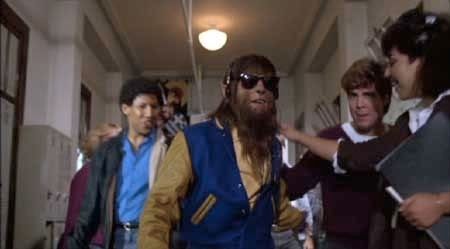
Screen capture by Chris Stangl
To remind us of why the Hero is, indeed, so suddenly awesome, someone passes him a basketball, which he tosses masterfully over his shoulder. Next, we see him mentioned in the school newspaper, emblazoned on t-shirts, breakdancing in the hall – courting the coveted “naturally cool” black crowd – laughing at his geek friend who doesn’t understand such coolness, challenging the Law – the school principal – and succeeding. Then the Hero is shown winning at basketball, stealing the ball from the Foils because, frankly, he is the only who’s any good, the crowds and previously-sexually-unavailable cheerleaders going wild, and then he is signing autographs for children. Making As on his tests. The government and CNN haven’t come knocking yet, but no matter.
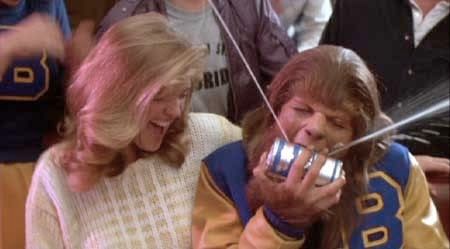
Screen capture by Chris Stangl
The Goddess has started seriously approaching the Hero now. She sees he is naturally a Hero, and so deigns to crown him as her lover. She is, of course, still technically tied to the Alpha Male – she won’t let the Hero win her that easily! The Hero, being a nice guy underneath it all, doesn’t understand and is hurt – but hell, when a girl like that takes off all her clothes for you, how can any Hero say no?
His father’s words now come back to haunt him: “With great power comes great responsibility.” The Soul Mate begins to feel dumped by the wayside; the Sidekick is off unashamedly reaping the spoils of the Hero’s popularity; the Law is now for some reason approving; the Goddess – while deigning to sleep with him – is unfathomably cold, unavailable, and mean to the Hero’s old posse; the Foils feel jealous and unnecessary. (It is interesting to note the selection of basketball as the Hero’s athletic vehicle – a sport much more susceptible to an individual stealing the spotlight – with the result that the Hero must pay for it eventually - as opposed to the group-oriented sport of football, where an individual’s only true effect is to make or break the team) The Alpha Male, who before was worried he would be usurped via his mate, the Goddess, now senses all is not well with his rival, and teases him accordingly: “You don’t scare me, freak. Underneath all that hair, you’re still a dork, Scott.”

No matter. There may be truth to the Alpha’s words, but the Hero still thinks he is invincible. He uses his power indiscriminately, surfing and dancing on top of vans and blowing off his job.

But when he returns home, he’s chastised by his wiser father. “You’ve dug your own hole,” his father informs him, then tells him that he once became a werewolf out of anger. This, we gather from the father’s expression, is bad. “You’ve got to get a hold of it, son.” Ominous words.
Anyway, time for The Spring Ball! and, because the Goddess is attending with the Alpha Male, the Hero figures he ought to ask out the Soul Mate. The Soul Mate, loving him for he who he is, demands he come as a human. The Hero interprets this as demanding he come as a geek – and he’s spent too much time fighting off that bad image. No dice. So he blow-dries his were-fur, puts on his best clothing and travels to the requisite high-school auditorium, its teeming horde of masses, who immediately recognize him as godly and part so he may pass. The Goddess gives him an approving glance – but he’s looking for the Soul Mate (though why I can’t figure out, except to fulfill the story's obligation). She is put off by the masses’ adoring chanting of “Wolf! Wolf! Wolf! Wolf!” but decides to dance with him anyway.
They monster mash to 80’s music for a while. The Alpha Male and Goddess look irritated – the Alpha because the crowds aren’t busy adoring
him, the Goddess for the same reason. The Soul Mate then somehow drags the Hero to the locker hall (their budding relationship is not approached very convincingly, even though the relat was always meant to be – alas), and, apparently upon the taste of love on her lips, the the Hero immediately, uncontrollably, morphs from Teen Wolf to Human Scott. Ah, so his real self is truly Scott! Interesting.
Upon returning to the dance, the Alpha Male takes out his aggression on the now-human Hero and the Soul Mate, calling her a “tramp” – and lo, the Hero transforms into the werewolf out of anger. Did his father not warn him of this? The Goddess calls him an animal, everyone looks at him askance, and Teen Wolf, sensing he has worn out his, er, welcome, leaves. (Oh, and his dad gets to settle his score with the Law.)
Now everything starts falling apart. The Hero is unsure of himself – who is he? Is he Teen Wolf? Is he Scott? This is a common theme as well (Am I Peter Parker or am I Spidey? etc). “They want the Wolf – but I can’t give it to them . . . You saw what happened . . .” Because almost getting into a fight with a jerk over his calling your girl a tramp is indicative of outright, black magic-tinged, murderous rages. Flee! Flee for your lives!!!
So the Hero must make a decision. And, at the championship basketball game, he makes it. He attends, despite being forbidden by the Law as punishment for lashing out at the Alpha. And he attends as Scott. “I want to play. I want to be myself! I think we can take these guys. I think we can win this! We got to pull this off by ourselves. We don’t
need the Wolf!” Whether he says this out of true conviction, or in the hopes it will convince him, is unclear, but that’s unimportant, as it’s now time for some championship basketball!! woohooo!!
Of course, the Alpha Male is on the opposing team, and makes snide remarks about the Foils, the Hero’s teammates. But he is up against an unstoppable truism – when the Hero wins, everybody wins. Including Chubby. Who knocks the Alpha on the ground. Rock on, Chubs!!!!!

Of course the Hero wins. If he didn’t, the world would implode. But it’s not easy – he must inspire himself and the others to recognize their true selves, their true talents – and it is
this that makes the Hero truly heroic. As the music says, “I won’t fight behind a mask – what you see is what you get from me.” The score is 50 to 52 (pretty lousy score, actually), and the Hero gets knocked down by the Alpha, setting him up for the dramatic final foul throw. The Alpha Male always causes his own downfall, for no one else is strong enough to open that door. The Hero takes the ball in his human hands and lands an easy, irrelevant point to bring the score 51 to 52. And then - and then! - in a minute of slow-mo, sweat-soaked, heart-stopping glory, the human Hero makes the final toss. And it’s good.
The Alpha Male’s eyes close. He is defeated.
The crowds go wild! Everyone is screaming, shouting, waving hands in the air, spilling out onto the court! The Hero is lifted up onto the shoulders of his comrades and escorted indirectly towards the Goddess, who waits to crown him again as the Master – deservedly, this time. But the Hero ignores her. He knows her worth now. She can’t rightfully crown him. He slides off the shoulders of his celebrating friends, pushes past the Goddess – who has now become just a scheming Whore – to find – who else? - his Soul Mate, who he knows, now, is meant to be his. Her worth crowns him. They kiss, and ride off into the auditorium’s sunset, to live out the rest of their happy lives.
But it is not only the Hero who undergoes a transcendental experience. The Goddess – now the Whore – recognizes what she’s become. She sees the Alpha Male for who he really is. He grabs her arm to leave, and she wrenches away in physical and mental anguish, growls at him to “Drop dead.” Not
quite as satisfactory as I would've liked, but whatevs.
Ah well. It is true, as Teen Wolf demonstrates, that with great power comes great responsibility. And it is even more true that we like to think we can shirk that responsibility; that, if only the situation was just right, we wouldn’t have to worry about others, or even, truly, ourselves. This cannot be. “You’ve got to get a hold of it, son,” the Hero’s father reminds him. Reminds us all.
For another account of Teen Wolf, via Chris Stangl,
see Jeeze Louise!: Notes on TEEN WOLF (1985) and
Wolf Buddy: A Celebration of Stiles

